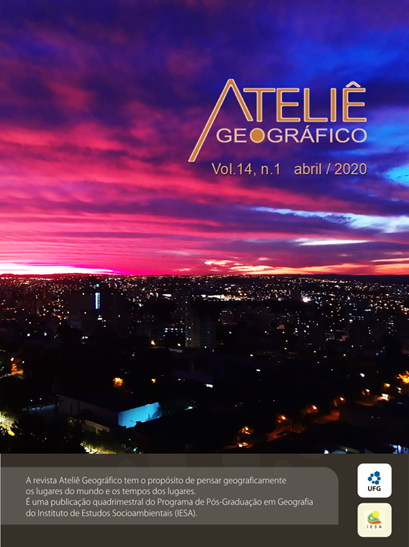Inclusive School Cartography: the digital educational game as an instrument in cartographic literacy and deaf and hearing impaired students
DOI:
https://doi.org/10.5216/ag.v14i1.57350Abstract
The new methodologies in the teaching of geography have been seeking modern proposals for the approximation between the communities that make up the society, what is conventionally called inclusive education. In this sense, the research reported here sought to contribute to the improvement of techniques aimed at teaching and learning the School Cartography of deaf and deaf students in the municipality of Santa Maria, RS. The methodology employed was structured in three phases: the first, in the observation of the students of the Dr. Reinaldo Fernando Cóser State School of Special Education; the second was the construction of the profile of deaf and deaf students who study in the municipality; the third is the assessment of students' impressions of the digital game “CartoCon: Our Geographic Expedition” through the qualitative approach. The results obtained were positive, showing that the digital game, when adapted to the students' conditions, is a viable resource in the inclusive teaching of School Cartography, meeting the demands of the students who are part of the deaf community of the municipality.
Keywords: Geography teaching. Inclusive School Cartography. Digital game.
Downloads
Downloads
Published
How to Cite
Issue
Section
License
Autores que publicam nesta revista concordam com os seguintes termos:- Autores mantém os direitos autorais e concedem à revista o direito de primeira publicação, com o trabalho simultaneamente licenciado sob a Licença Creative Commons Attribution que permite o compartilhamento do trabalho com reconhecimento da autoria e publicação inicial nesta revista.
- Os autores não serão remunerados pela publicação de trabalhos na Revista Ateliê Geográfico. Além disso, os conteúdos publicados são de inteira e exclusiva responsabilidade de seus autores, ainda que reservado aos editores o direito de proceder a ajustes textuais e de adequação às normas da publicação.
- Autores têm permissão e são estimulados a divulgar seu trabalho online (ex.: em repositórios institucionais ou na sua página pessoal), já que isso pode gerar alterações produtivas, bem como aumentar o impacto e a citação do trabalho publicado (Veja O Efeito do Acesso Livre).


